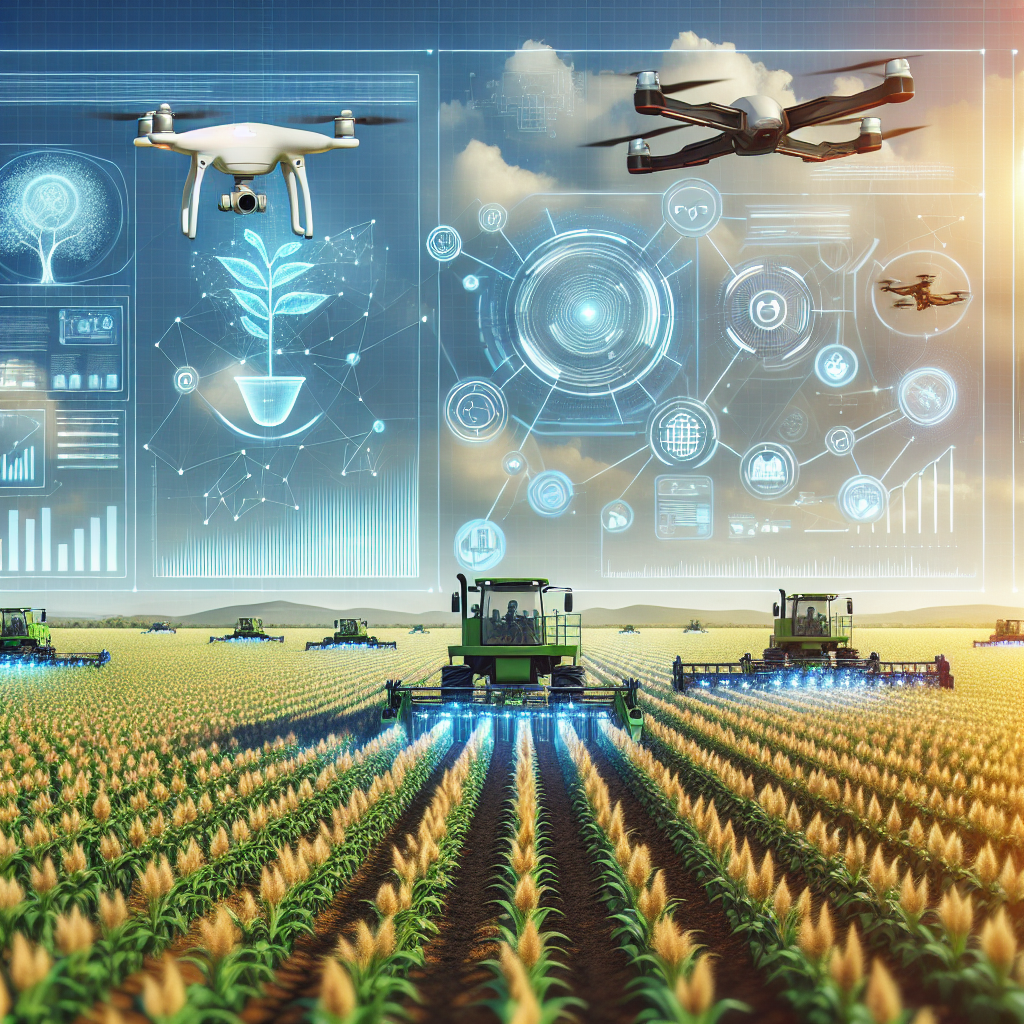AI in Agriculture: Improving Crop Yields
Artificial Intelligence (AI) is revolutionizing various industries, and agriculture is no exception. The use of AI in agriculture has the potential to significantly improve crop yields, reduce waste, and increase efficiency in farming practices. From automated machinery to predictive analytics, AI technologies are transforming the way we grow and harvest crops.
One of the key benefits of AI in agriculture is its ability to optimize farming processes. By analyzing data such as soil quality, weather patterns, and crop growth rates, AI algorithms can provide valuable insights to farmers. This information can help farmers make informed decisions about when to plant, fertilize, and harvest crops, leading to higher yields and reduced costs.
AI technologies can also help farmers monitor crop health and detect diseases early on. By using drones equipped with AI-powered cameras, farmers can quickly identify areas of their fields that are experiencing issues such as nutrient deficiencies or pest infestations. This early detection allows farmers to take action before the problem spreads, ultimately saving crops and increasing yields.
Another way AI is improving crop yields is through precision agriculture. This approach involves using sensors and AI algorithms to monitor and manage individual plants or small areas of a field. By providing targeted inputs such as water, fertilizer, and pesticides, farmers can optimize crop growth and minimize waste. This precision agriculture can lead to higher yields, better quality crops, and reduced environmental impact.
AI technologies are also being used to automate farming tasks, such as planting, weeding, and harvesting. Autonomous tractors and robots equipped with AI algorithms can perform these tasks more efficiently and accurately than human laborers. This automation not only saves time and labor costs but also allows farmers to focus on more strategic aspects of their operations.
In addition to improving crop yields, AI in agriculture is also helping to address global food security challenges. By increasing efficiency and reducing waste, AI technologies can help ensure a stable and sustainable food supply for a growing population. This is particularly important in the face of climate change and other environmental threats that can impact crop production.
Overall, AI in agriculture holds great promise for improving crop yields and revolutionizing farming practices. By leveraging the power of AI technologies, farmers can increase productivity, reduce costs, and contribute to a more sustainable and secure food system.
FAQs
Q: What are some of the AI technologies being used in agriculture?
A: Some of the AI technologies being used in agriculture include machine learning algorithms, drones, sensors, and robotics. These technologies are being used to optimize farming processes, monitor crop health, and automate tasks such as planting and harvesting.
Q: How can AI help improve crop yields?
A: AI can help improve crop yields by providing valuable insights to farmers, optimizing farming processes, and detecting diseases early on. By analyzing data such as soil quality, weather patterns, and crop growth rates, AI algorithms can help farmers make informed decisions that lead to higher yields and reduced costs.
Q: What are the benefits of precision agriculture?
A: Precision agriculture involves using sensors and AI algorithms to monitor and manage individual plants or small areas of a field. This approach can lead to higher yields, better quality crops, and reduced environmental impact by providing targeted inputs such as water, fertilizer, and pesticides.
Q: How can AI technologies help address global food security challenges?
A: By increasing efficiency and reducing waste, AI technologies can help ensure a stable and sustainable food supply for a growing population. This is particularly important in the face of climate change and other environmental threats that can impact crop production.
Q: What are some of the challenges of implementing AI in agriculture?
A: Some of the challenges of implementing AI in agriculture include the cost of technology, the need for reliable data sources, and the potential resistance from farmers who are unfamiliar with AI technologies. However, as the benefits of AI in agriculture become more evident, these challenges are likely to be overcome.

